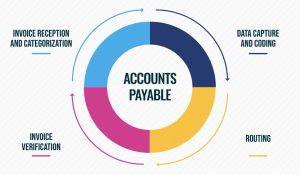The Backbone of Business: Why Every Enterprise Needs a Professional Bookkeeper
In today’s fast-paced business world, entrepreneurs and established companies alike are constantly juggling myriad responsibilities. From product development and marketing to sales and customer service, the daily demands can be overwhelming. Amidst this flurry of activity, one critical function often gets overlooked or relegated to a hurried afterthought: bookkeeping.
While it may not always be the most glamorous aspect of business, professional bookkeeping is, without doubt, the backbone of financial health and sustainable growth. Far more than just data entry, a skilled bookkeeper provides a clear, accurate, and up-to-date picture of your company’s financial standing, empowering you to make informed decisions and navigate the complexities of the market with confidence.
What Exactly Does a Bookkeeper Do?
At its core, bookkeeping involves the systematic recording of all financial transactions of a business. This includes:
- Recording Sales and Expenses: Meticulously tracking every inflow and outflow of cash.
- Managing Accounts Payable and Receivable: Ensuring suppliers are paid on time and customer invoices are collected efficiently.
- Reconciling Bank Statements: Matching company records with bank statements to ensure accuracy and identify discrepancies.
- Payroll Processing: Handling employee salaries, deductions, and tax obligations.
- Maintaining the General Ledger: Organizing all financial data into a comprehensive system.
- Generating Financial Reports: Producing essential reports like the income statement, balance sheet, and cash flow statement.
Beyond the Basics: The Indispensable Value of Professional Bookkeeping
While these tasks might seem straightforward, the expertise of a professional bookkeeper extends far beyond mere data entry. They offer invaluable benefits that can significantly impact your business’s success:
- Financial Clarity and Insight: Imagine trying to drive a car without a dashboard. That’s what running a business without accurate financial records feels like. A bookkeeper provides the “dashboard” – real-time insights into your profitability, expenses, and cash flow, allowing you to understand exactly where your money is coming from and going.
- Informed Decision-Making: With clear financial data at your fingertips, you can make strategic decisions based on facts, not guesswork. This includes budgeting, pricing strategies, investment opportunities, and operational adjustments.
- Time Savings and Increased Productivity: For business owners, time is money. Outsourcing bookkeeping frees up countless hours that can be reinvested into core business activities, strategy, and growth initiatives.
- Error Reduction and Fraud Prevention: Professional bookkeepers are trained to identify and correct errors, ensuring the integrity of your financial data. Their expertise also acts as a deterrent against potential fraud.
- Tax Preparation Made Easy: Accurate and organized books are the foundation of stress-free tax preparation. A bookkeeper ensures you have all the necessary documentation, often working directly with your tax accountant to streamline the process and identify potential deductions.
- Compliance and Audit Readiness: Staying compliant with financial regulations and tax laws is crucial. A professional bookkeeper ensures your records adhere to all necessary standards, making you audit-ready at any time.
- Scalability and Growth: As your business grows, so does the complexity of your financial operations. A professional bookkeeping service can scale with you, providing the consistent support you need without the overhead of hiring a full-time in-house employee.
Is It Time to Partner with a Professional Bookkeeper?
If you find yourself overwhelmed by receipts, confused by financial statements, or spending precious time trying to balance your books, it’s a clear sign that a professional bookkeeper can be a transformative asset to your business. Investing in their expertise is not an expense; it’s a strategic decision that pays dividends in financial stability, operational efficiency, and ultimately, sustainable business growth.







